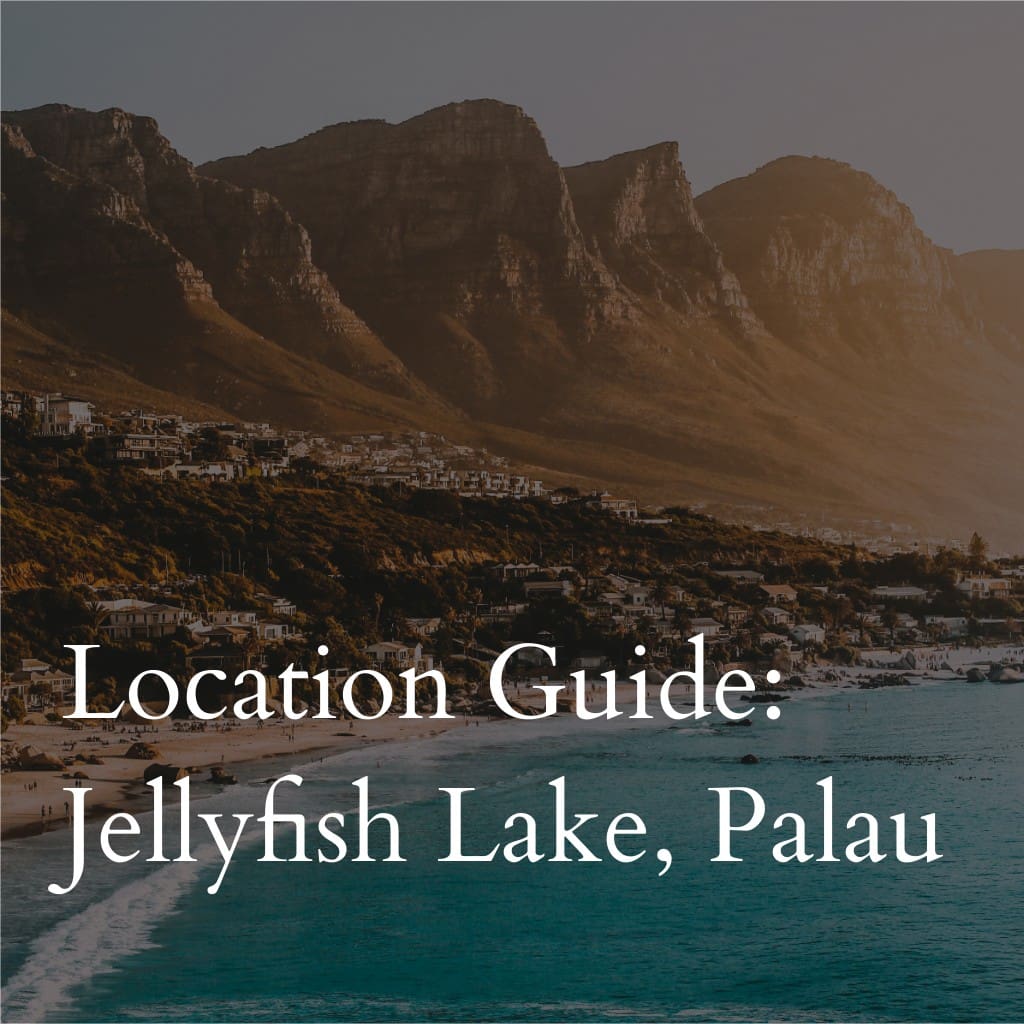Key Attractions
Jellyfish Lake is celebrated for its dense population of golden jellyfish, estimated to be in the millions. These jellyfish undertake a daily migration across the lake, synchronized in a hypnotic ballet that captivates all who witness it. The lake’s allure doesn’t end there—other key attractions include:
- Unique Biodiversity: Besides golden jellyfish, Jellyfish Lake is home to a variety of other marine life including different types of plankton and microorganisms.
- Pristine Waters: The clarity and temperature of the water make for an enjoyable and relatively easy snorkeling or diving experience.
- Scenic Surroundings: Eil Malk Island itself is a lush tropical paradise, adding a layer of terrestrial beauty to the underwater spectacle.
- Scientific Interest: Researchers flock to Jellyfish Lake to study its closed ecosystem, providing invaluable insights into marine biology and evolutionary processes.
- Photography Opportunities: The translucent waters and abundant jellyfish create surreal photo opportunities, making it a haven for underwater photographers.
Location and Accessibility
Geographic Details
Jellyfish Lake, known locally as Ongeim’l Tketau, is located on Eil Malk Island in Palau. Situated within the dramatic seascape of the Rock Islands, this marine lake is surrounded by lush jungle and towering limestone formations, creating a secluded and enchanting environment. Eil Malk is one of the over 300 islands that make up the Rock Islands Southern Lagoon, a UNESCO World Heritage Site, renowned for its unparalleled marine biodiversity and stunning landscapes.
How to Get There
Reaching Jellyfish Lake involves a few steps but is well worth the effort:
- Air Travel: The first step is flying to Palau. The nearest major airport is Roman Tmetuchl International Airport (ROR) located in Airai, Palau. Several international carriers, including United Airlines and Asiana Airlines, offer regular flights from major hubs such as Manila, Seoul, and Taipei.
- To Koror: From the airport, you will need to make your way to Koror, the largest city in Palau. This can be done via a short taxi ride or a hotel shuttle service.
- Boat Trip to Eil Malk Island: Once in Koror, you’ll need to arrange for a boat transfer to Eil Malk Island through a local tour operator or diving center. The boat trip typically takes around 30 to 45 minutes, offering scenic views of the Rock Islands along the way.
- Hike to the Lake: Upon arriving at Eil Malk Island, visitors must hike a short but steep trail through the jungle to reach Jellyfish Lake. The hike is well-marked and takes about 10-15 minutes.
Travelers should be prepared for the tropical climate and bring essentials such as water, sturdy shoes, and sun protection. Additionally, it’s important to note that Jellyfish Lake is currently a part of the Rock Islands Southern Lagoon conservation area, and entry fees apply. These fees are generally included in the tour packages offered by local operators, along with any necessary permits.
Marine Life
Species Diversity
Jellyfish Lake, located on Eil Malk Island in Palau, is famous for its unique inhabitants. The lake is home to millions of golden jellyfish (Mastigias papua etpisoni) and moon jellyfish (Aurelia aurita). These jellyfish have adapted to the lake’s environment by losing their stinging capabilities, allowing divers to swim alongside them without the usual risks posed by jellyfish in other regions.
Aside from the mesmerizing jellyfish, the lake also supports a variety of other species, including:
- Microalgae: The lake’s ecosystem relies on the symbiotic relationship between the jellyfish and algae, with the algae providing nutrition through photosynthesis.
- Plankton: Both phytoplankton and zooplankton thrive in Jellyfish Lake, providing a food source for the jellyfish and other small marine organisms.
- Bacteria and Protozoa: The lake also contains various species of bacteria and protozoa, contributing to the overall biodiversity and functioning of the ecosystem.
Conservation Efforts
Jellyfish Lake has been the focus of significant conservation efforts to preserve its unique ecosystem. These measures include:
- Protected Area Status: The lake is part of the Rock Islands Southern Lagoon, a UNESCO World Heritage site, which helps ensure its protection and sustainable management.
- Visitor Regulations: Limits have been placed on the number of visitors to the lake to reduce the environmental impact. Tourists are required to follow specific guidelines, such as not using sunscreen to prevent water contamination.
- Research and Monitoring: Ongoing scientific research and monitoring are conducted to understand the lake’s ecosystem better and address any emerging conservation challenges.
Safety and Regulations
Safety Tips
Diving in Jellyfish Lake offers unique experiences, but it also demands certain precautions to ensure the safety of divers and the preservation of the delicate ecosystem. Here are some essential safety tips:
- Avoid Sudden Movements: The jellyfish in the lake are sensitive to disturbances. Moving gently and avoiding abrupt actions can prevent stress to the jellyfish and promote a safer diving experience.
- Hydration: Palau’s tropical climate can be quite hot, making it essential for divers to stay well-hydrated before and after their dive.
- Snorkel Instead of Dive: To minimize the environmental impact and avoid disturbing the bottom sediments, it is recommended to snorkel rather than use scuba gear in the lake.
- Avoid Contact: While the jellyfish have lost their stinging ability, it is still good practice to avoid touching them to prevent any potential harm to the creatures or the divers.
Local Regulations
The Palauan government and local authorities have established several regulations to protect Jellyfish Lake and its unique inhabitants. These include:
- Permit Requirements: Visitors must obtain a permit to enter Jellyfish Lake, ensuring that access is controlled and monitored.
- Environmental Guidelines: Divers and snorkelers must adhere to strict guidelines that prohibit the use of sunscreens or lotions that can pollute the water. Biodegradable sunscreen is often recommended.
- Supervised Visits: Tours are typically conducted with the supervision of certified guides who are familiar with the local environment and responsible practices.
- Restrictions on Equipment: Scuba diving is generally not allowed in the lake to minimize disruption to the sediment and marine life. Snorkeling is the preferred method of exploration.
These regulations are designed to maintain the ecological integrity of Jellyfish Lake while allowing visitors to enjoy its natural beauty responsibly.
Non-Diving Activities
Local Attractions
Jellyfish Lake, situated on Eil Malk Island in Palau, offers an array of activities for non-divers or for divers looking to unwind after a day in the water. Here are some noteworthy attractions:
- Hiking Trails: The surrounding area offers several hiking trails that allow visitors to explore the lush tropical landscape and get panoramic views of the Rock Islands and beyond.
- Rock Island Tours: Guided tours of the Rock Islands, a UNESCO World Heritage site, include kayaking or canoeing through the maze-like clusters of islets, offering a unique perspective of Palau’s natural beauty.
- Beaches and Lagoons: There are numerous hidden beaches and secluded lagoons in the vicinity where visitors can relax, swim, or even enjoy a picnic.
- Bird Watching: The islands are home to a diverse range of bird species, making it a veritable paradise for avid bird watchers.
Cultural Experiences
Palau boasts a rich cultural heritage, and visitors to Jellyfish Lake can immerse themselves in the local traditions and experiences:
- Bai Houses: Traditional meeting houses known as ‘Bai’ are an iconic part of Palauan culture. Visitors can learn about the architectural significance and historical importance of these structures.
- Local Markets: Exploring local markets is a great way to get an authentic taste of Palauan life. From fresh produce to traditional crafts, markets offer a vibrant snapshot of local culture.
- Palau Culture and Wildlife Museum: Located in Koror, this museum offers insights into Palau’s natural and cultural history, with exhibits ranging from ancient artifacts to modern-day marine life displays.
- Dining Experiences: Indulge your taste buds with local cuisines such as taro, fresh seafood, and traditional Palauan dishes. There are numerous local eateries and restaurants that provide a true culinary adventure.
- Cultural Performances: Traditional dance performances and music events are frequently held, showcasing Palau’s rich cultural tapestry. These performances are a magnificent blend of history and artistry, offering visitors a glimpse into Palauan folklore.
Summary
Jellyfish Lake offers an unrivaled diving adventure, blending natural beauty with a unique ecosystem. Its tranquil waters and mesmerizing golden jellyfish provide an enchanting escape for divers and snorkelers alike. Beyond its breathtaking underwater scenery, Jellyfish Lake stands as a testament to nature’s wonders and the importance of preserving such unique ecosystems.
Don’t miss the chance to explore this otherworldly site. Plan your visit to Jellyfish Lake today and experience the magic firsthand. Contact local dive centers in Palau for more information and to ensure a safe, responsible diving trip.


Leave a Reply